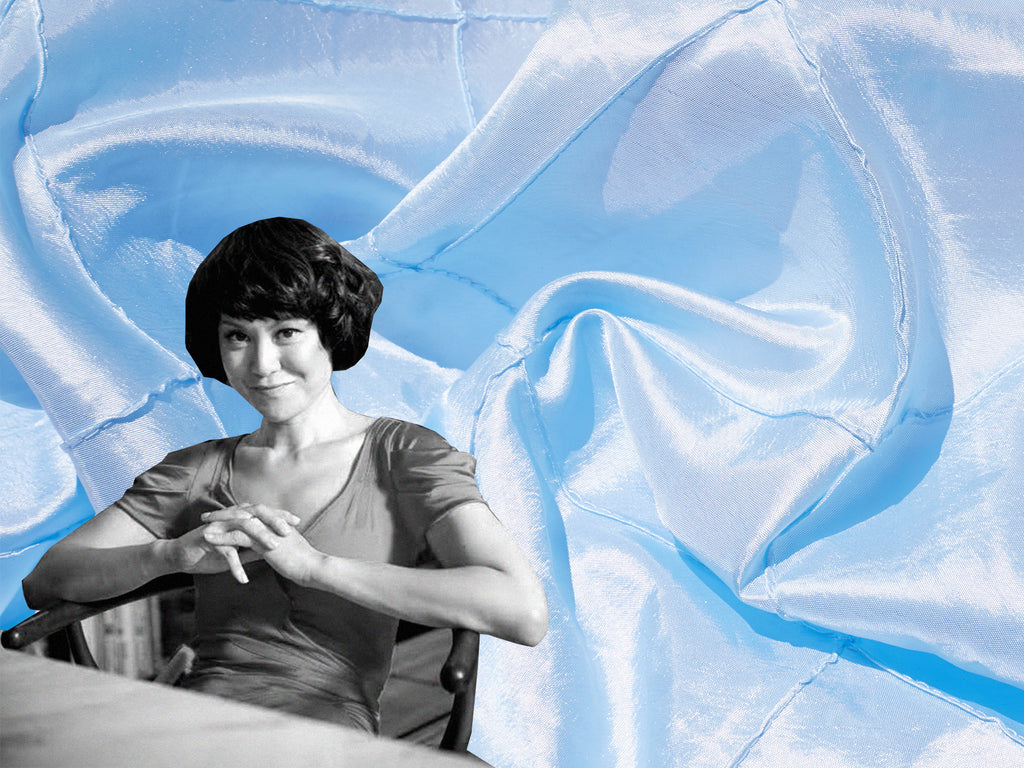Crazy Rich Asians is heading for a $25 million opening weekend, according to The Hollywood Reporter. And it’s no surprise. Not since Joy Luck Club (read: 25 years ago) has Hollywood produced a film with an all-Asian cast.
Janice Koh is one of those cast members, playing Felicity Young, the sister of the great Michelle Yeoh’s Eleanor Young. But in real life, the Singaporean’s stage and screen career is just as great. After all, Koh is on the National Arts Council, a vocal LGBTIQ advocate (same sex love is illegal in Singapore) and she’s a trained yogi and former nominated member of Parliament. Talk about Asian excellence.
We spoke to Koh about exactly that. Not to mention the critical need for diversity in Hollywood, and the impact that representation such as Crazy Rich Asians will have on the next generation of young women.
Jerico Mandybur: What’s your strongest memory of an Asian cast or actor/s in a mainstream Western film?
Janice Koh: Joan Chen in The Last Emperor and Michelle Yeoh in Crouching Tiger, Hidden Dragon stand out most clearly in my memory of seeing a strong Asian woman in a Western-made film. As a young person watching a lot of mainstream cinema then, I remember feeling very proud to see great Asian actresses holding their own in a Hollywood film.
What female Asian performers have inspired you, as a child, or in your early career?
I have always been a great admirer of the work of Gong Li and Maggie Cheung, and their work in films by Zhang Yimou and Wong Kar-Wai. These films, which have been highly acclaimed and have picked up many international awards, not only showcase great Asian talent, but also represent some of the best of Asian storytelling. These performances inspired me greatly as a young actor.
What’s the significance of Crazy Rich Asians in our current cultural climate?
I think the film’s impact in North America will be quite different from Asia. You rarely see Asian men and women in leading roles in Hollywood, and the Asian American community has been largely invisible on the big screen. I think a mainstream romantic comedy like Crazy Rich Asians, starring an all-Asian cast, could be a very important step towards “normalizing” the Asian presence in Western cinema.
“You rarely see Asian men and women in leading roles in Hollywood, and the Asian American community has been largely invisible on the big screen.”
Representation is less of an issue for those of us who live in Asia, who regularly see our faces on screen, and who have access to great Asian cinema from Japan, China, Korea, Taiwan and so on. Nevertheless, the success of Crazy Rich Asians will still have a positive impact even in these territories.
By shifting perceptions and mindsets toward Asian actors in Hollywood, it can only lead to greater openness and awareness of Asian films and storytelling, and open more doors for Asian writers, directors and creative talent.
What might it mean for Asian girls and young women in the US to see themselves as leading romantic ladies, in a mainstream film like this?
Everyone needs heroes in their lives whom they can identify with and be inspired by. Popular media plays an important role in providing that, especially for young women and girls. For an Asian girl in America to see Asian actresses being celebrated in a big way reinforces her sense of who she is, her self-pride and belonging.
When you first read the script for Crazy Rich Asians, what did you think?
When I found out that Hollywood wanted to make a movie based on a bestselling book about a family in Singapore with an all-Asian cast, I knew it was a rare opportunity. As someone who grew up in Singapore, I would have chopped off my right hand to be in the film! Thank goodness I didn’t have to!
Why is diversity in the film industry so crucial? What’s at stake if Hollywood doesn’t embrace it?
Stories play a vital role in creating understanding, empathy, and dialogue, which is what we need more of in this current climate. The more we see faces of diverse ethnicities on screen, the more we learn to appreciate different standards of beauty … And this doesn’t apply to ethnic diversity alone. It applies to any under-represented group on screen.
Exposure and frequency can be very powerful in changing mindsets and perception. It’s been really refreshing to see Constance Wu and Henry Golding gracing the covers of major magazines in the lead up to the film over the past few months. All these images play a big part in changing perceptions.
Hopefully, this mindset change will accelerate when we have even more international and Asian content on media streaming platforms like Netflix and Amazon. If Hollywood can’t catch up, these platforms will play an even more vital role in getting the content out there. I am optimistic and I think it’s going to be very exciting.



